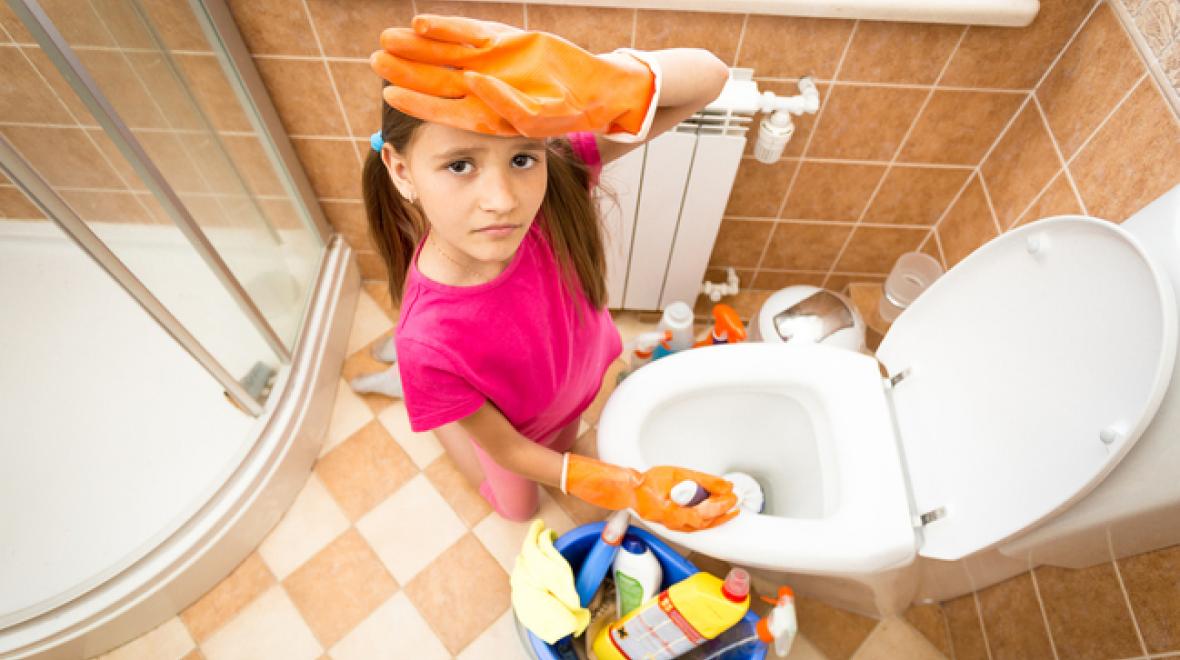
“I hate doing this! This isn't fun,” my children yell when I ask them to clean up, their frustration hitting me like a wave. As I look at them, I realize that not only do they think cleaning should be fun, they expect everything in their lives to be.
How come, I wonder. Don’t they see the frustration on my face when I need to tidy up? Where on Earth did they get the idea that everything should be fun?
It turns out that my kids aren’t the only ones who think their lives should be a nonstop parade of unicorns and rainbows. This expectation of endless fun is on the rise, says Helen Marlo, a clinical psychologist and psychology professor.
I can see why. Blogs, Pinterest and other social media sites are chock full of tips for making otherwise boring things like chores more enjoyable for kids. These days, even learning has to be turned into “fun.” Common wisdom seems to be that if something isn’t fun, they won’t learn it. Like Mary Poppins said, “Find the fun, and snap! The job’s a game!”
While it’s true that kids learn better when they’re enjoying the matter at hand, turning everything into a game has its price. Most things in life are decidedly not fun. And it’s important for kids to realize that.
“An insistence on fun prevents children and parents from dealing with the range of feelings and experiences in life including boredom, ambivalence, depression, anxiety, fear and loneliness,” says Marlo. Moreover, it can lead to a situation in which parents and children are so set on making everything fun that they begin to think they’re doing something wrong when it isn’t. This conveys the message that if something is not enjoyable, you need to quit immediately and do something more fun instead, Marlo asserts.
Most things in life are decidedly not fun.
Sometimes children need to struggle before they find joy in doing something. Take reading, for example. Learning how to turn letters into words and words into sentences is not necessarily fun at the beginning. In fact, it’s a lot of work, and it takes tremendous effort. But once children discover the key to it, it’s like a whole new world is opening up for them.
Parents may play a role in teaching kids to expect fun in whatever they do. After all, we live in the era of intensive parenting, where parents are expected to give their children the best life possible: one that’s devoid of problems, negative emotions or any conflicts whatsoever. But that’s not just unrealistic, it can also prevent children from learning how to deal with negative emotions. New research shows that it’s emodiversity, or the ability to experience a wide spectrum of feelings, that’s the key to mental well-being — not happiness or fun.
When adults preface an activity with “It’s going to be fun,” they set up expectations for children — and for themselves. “There is a subjective, but evaluative quality to ‘fun.’ It can trigger all kinds of judgments and expectations that, essentially, destroy the ‘fun’ and preclude any element of play,” says Marlo. So, paradoxically, constantly trying to have fun prevents children from experiencing genuine enjoyment.
Marlo makes an important distinction between “play” and “fun.” Play is a freely directed, spontaneous, exploratory activity that usually comes from the child. But “fun” is most often imposed from outside, by an adult. And, while the latter is increasing, the former is on the decline — which is the opposite of what kids need to thrive.
I’m the last person to sound an alarm about the decline of play because I believe most parents simply do the best they can. But making life fun for the children is exhausting, and I don’t think it’s good for anyone.
Making life fun for the children is exhausting, and I don’t think it’s good for anyone.
Mostly, I just don’t believe cleaning is any fun. I often tell my children, “Everybody hates cleaning. That’s why we make sure everybody does it so that the burden of it doesn’t fall on just one person.” I make sure that chores get done as quickly and efficiently as possible so there’s plenty of time left for the important stuff.
When my kids protest cleaning up, I do my best to empathize with them. After all, we’re in the same boat: We all hate cleaning. To motivate them a little, I say, “Okay, let’s do this. And then we can go to the playground.“
I won’t pretend cleaning is fun, but I’m not above rewarding their hard work — especially if that means cleaning gets done with less complaining.











